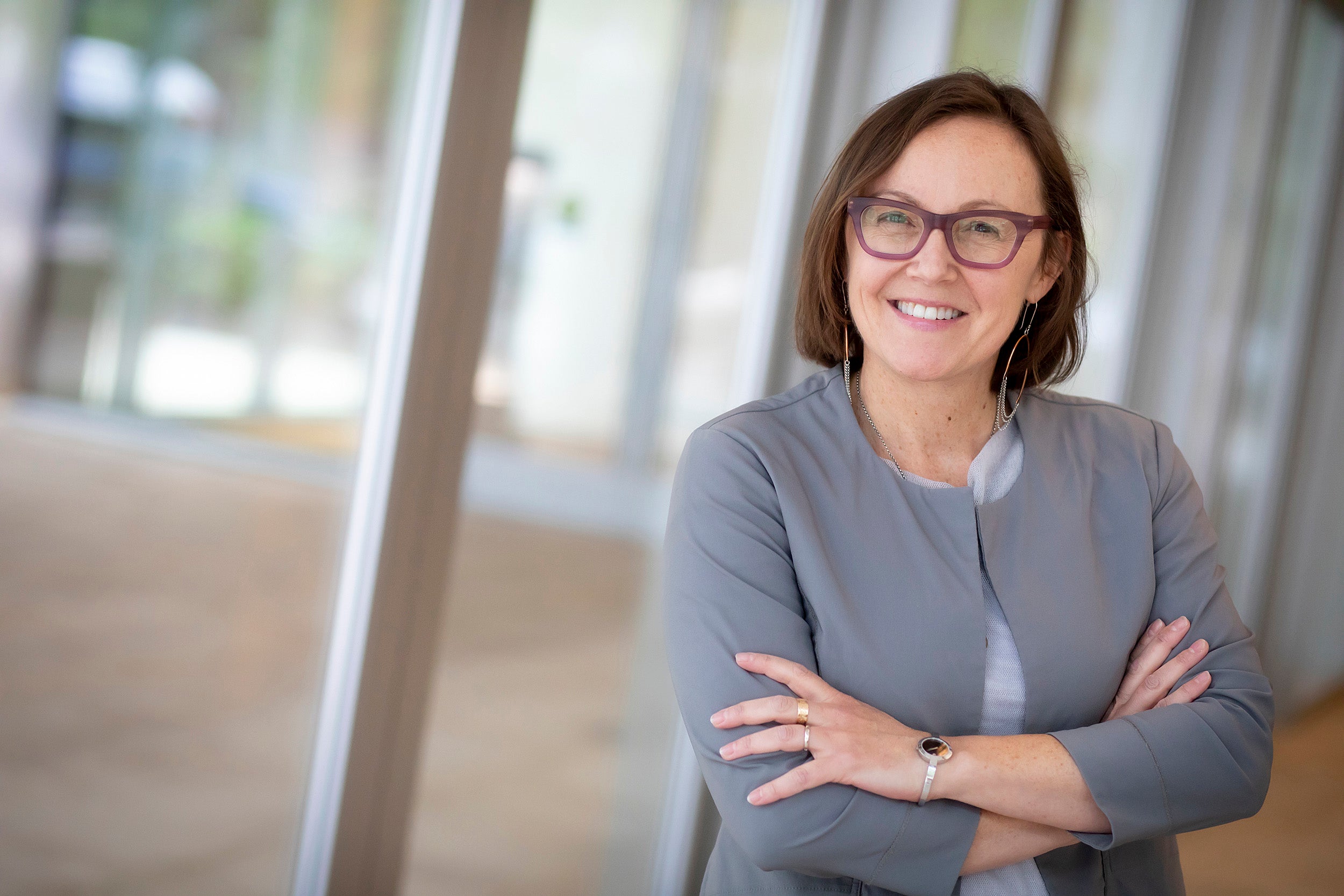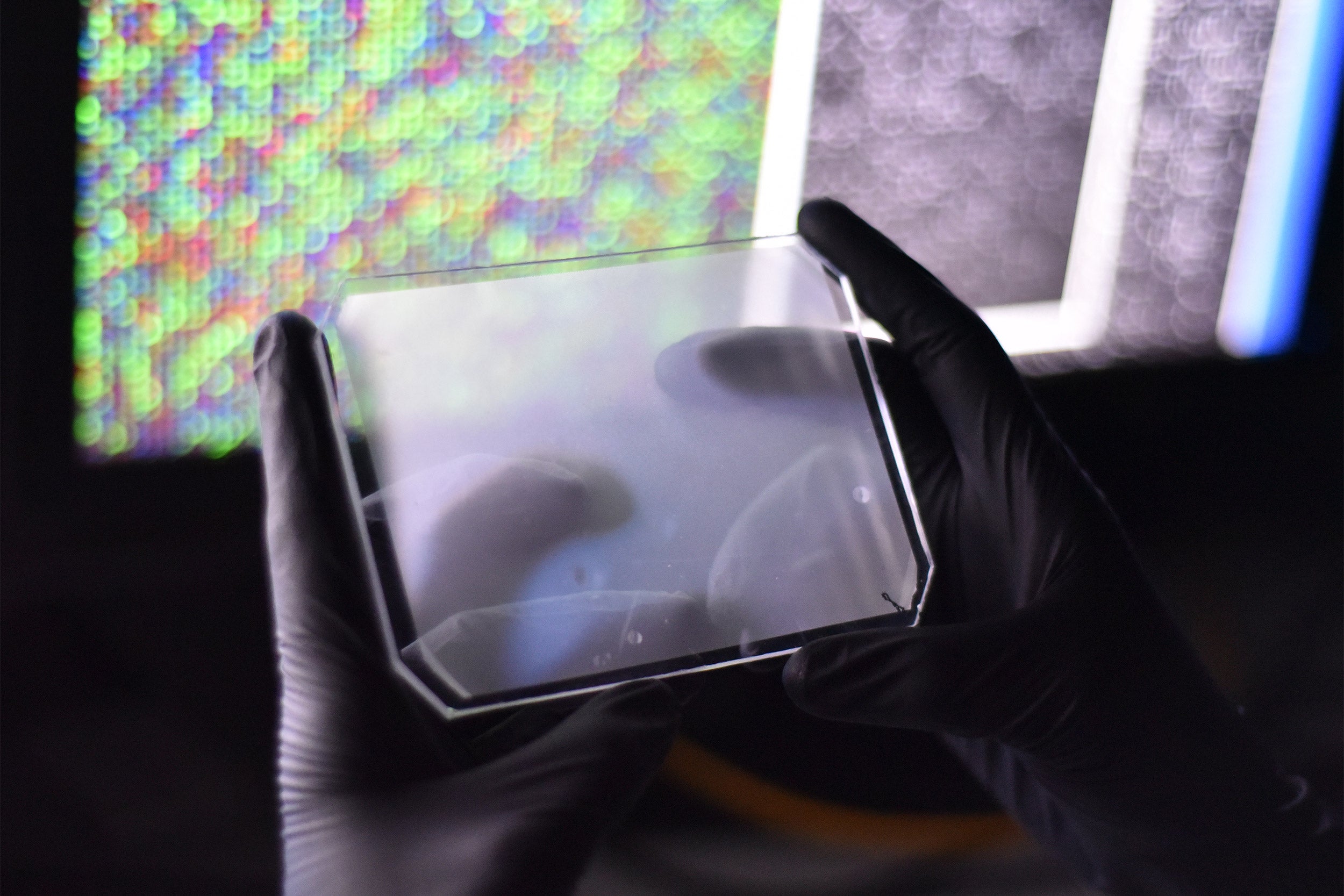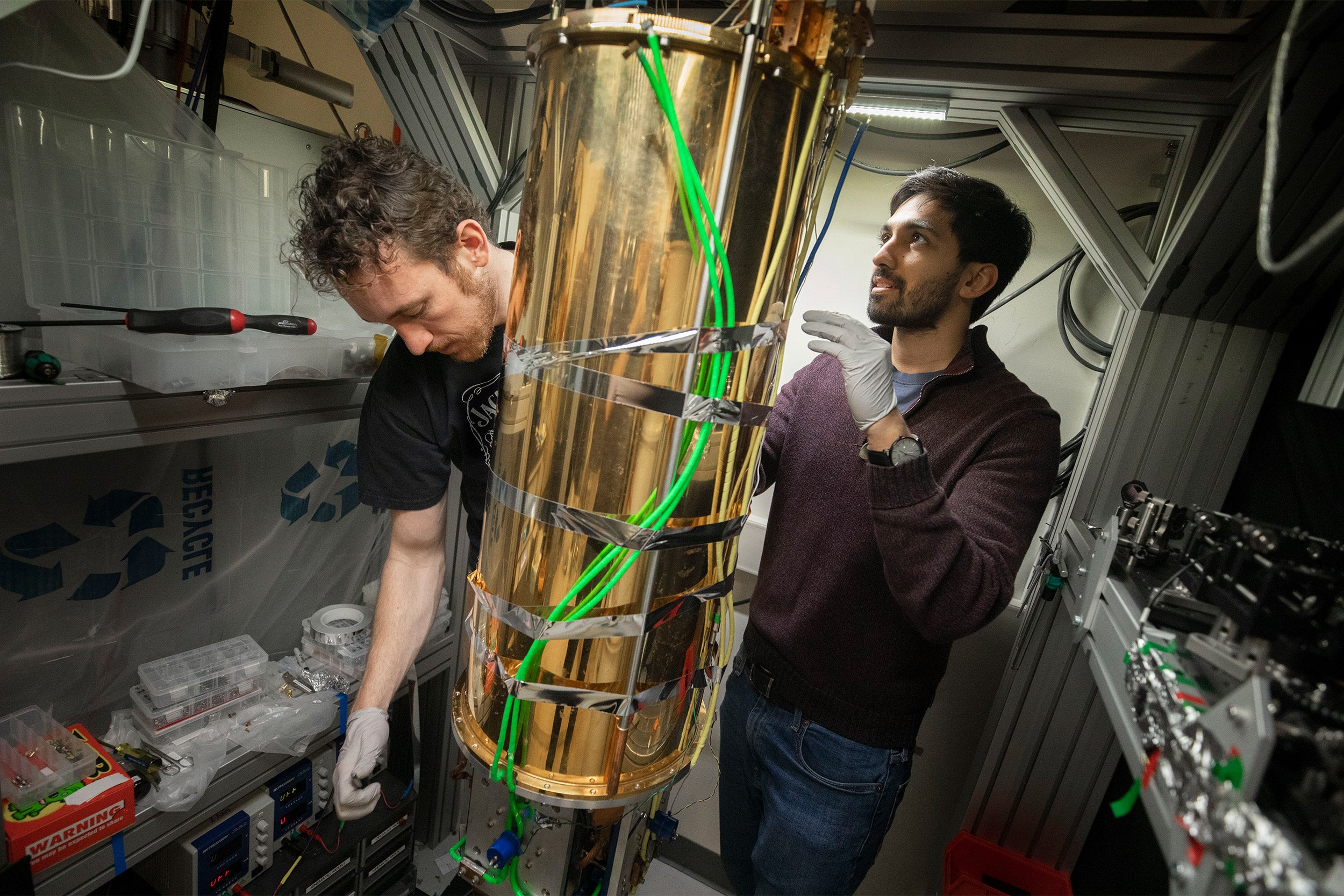New technology could provide rapid detection of COVID-19
The CRISPR-based molecular diagnostics chip’s capacity ranges from detecting a single type of virus in more than 1,000 samples at a time to searching a small number of samples for more than 160 different viruses, including the COVID-19 virus.
April 29, 2020 • ~8 min
Researchers demonstrate the missing link for a quantum internet
Harvard and MIT researchers have found a way to correct for signal loss with a prototype quantum node that can catch, store, and entangle bits of quantum information. The research is the missing link toward a practical quantum internet.
April 14, 2020 • ~8 min
Clinicians may one day give up syringes in favor of pills
New formulations enable oral delivery of therapeutics traditionally delivered intravenously.
April 9, 2020 • ~6 min
Remote work will stress-test the internet — and parts will fail
The massive shift from the office to remote work will test the internet in ways it hasn’t been tested before, a Harvard expert on the technology industry said, offering a real-time experiment that will likely see failures, but from which unexpected solutions will also emerge.
March 18, 2020 • ~13 min
In creating a coronavirus vaccine, researchers prepare for future
In response to this public health crisis, researchers in the Precision Vaccines Program at Boston Children’s Hospital are on the front lines of developing a vaccine specially targeted toward older populations
March 13, 2020 • ~8 min
NIH-funded i3 Center formed to advance cancer immunotherapy
Harvard’s Wyss Institute will collaborate with other institutions to form the i3 Center where cancer immunologists and biological engineers will develop new biomaterials-based approaches to enable anti-cancer immune-therapies for therapy-resistant cancers.
March 6, 2020 • ~9 min
The story behind the mumps outbreaks of 2016-17
Studying the mumps virus genomes in 2016 and 2017 filled in gaps about how the disease was spreading in Massachusetts and elsewhere in the U.S.
Feb. 11, 2020 • ~8 min
Big step toward identifying all cancer-causing genetic mutations
An international team of 1,300 scientists has generated the most complete cancer genome map to date, bringing researchers closer to identifying all major cancer-causing genetic mutations.
Feb. 5, 2020 • ~12 min
/
2




